With Halloween rapidly approaching to kick off the holiday season, we all know what’s coming—the dreaded holiday weight gain. Pets, like people, are prone to packing on a few extra pounds over the holidays when an abundance of mouth-watering goodies spill from dishes and tables. Again, like people, pets can quickly develop weight-related health issues after indulging in holiday treats. Avoid holiday-related gluttony, and other Halloween mishaps, with the following tips.
#1: Hide the Halloween candy stash out of paws’ reach
As a kid, we all enjoyed binging on our Halloween haul. Your pet is no different, and would happily gobble down your goodies if left unattended. Whether your pet is at a healthy weight or a little pudgy, candy is a terrifying trick rather than a tasty treat. Xylitol-sweetened candies, chocolate, and foil wrappers are all horrifying hazards to your pet’s health, and can lead to an emergency veterinary hospital trip on Halloween night. If you’d like to spoil your pet as well as your child on Halloween, opt for healthy treats, like fresh veggies, tiny chunks of cheese, pieces of lean meat, or small bites of fruit, excluding grapes and raisins.
#2: Choose a properly fitted costume for your pet
Choosing a pet costume without trying it on your furry pal first is tough, especially if they are overweight—for example, a Yorkie-sized costume won’t fit a Yorkie who is too heavy. If your pet is noticeably overweight or obese, pick a costume that is at least one size larger. Better yet, simply dress your pet in a festive bandana, or let them wear their favorite costume—their birthday suit—which will significantly reduce, or completely avoid, pet costume hazards, such as choking, impaired vision, breathing difficulties, or gastrointestinal obstructions.
#3: Exercise your pet before dark on Halloween
With the potential for missed trick-or-treating opportunities because of the COVID-19 pandemic, hooligans may be getting up to other mischief in your neighborhood. Before dark falls on Halloween night, ensure your pet is well-exercised and ready for a safe night indoors. A vigorous exercise session will not only burn off the extra calories in the handful of treats you slipped your pooch, but also help tire them out before you begin that scary movie that makes your dog howl along with the spooky soundtrack.
#4: Double up on your pet’s identification prior to Halloween
If your holiday goals include maintaining a healthy weight in the face of all the delightful treats, grab your built-in, four-legged exercise buddy and hit the trail. But, before heading out and working up a sweat, ensure your pet carries multiple identification forms. Check that their collar ID tag is legible, current, and solidly attached, and that their microchip registration has your most recent phone number and address on file. Since Halloween is one of the most common times of year that pets go missing, verify that your pet’s ID is up-to-date, and you are prepared for the unfortunate event of their escape should their leash be dropped if they are startled by the outdoor activity, or they slip out the often-open door during the spooky season. Keep in mind that black cats are most likely to go missing during Halloween, so keep an especially close eye on your midnight-colored feline.
#5: Place harvest-themed decorations out of your hungry pet’s reach
If you placed your pudgy pet on a diet prior to Halloween, those artfully carved jack-o-lanterns and cornstalk decorations may be too tempting. Curious, hungry pets may be enticed by the unusual decor and sample an old pumpkin, moldy cornstalk, or scratchy corncob, which can result in toxicity or a gastrointestinal obstruction. Don’t allow your pet access to Halloween decorations, especially pumpkins with candles or battery-operated lights inside, which can also be hazardous for pets.
#6: Learn about the terrifying dangers of diabetes in pets
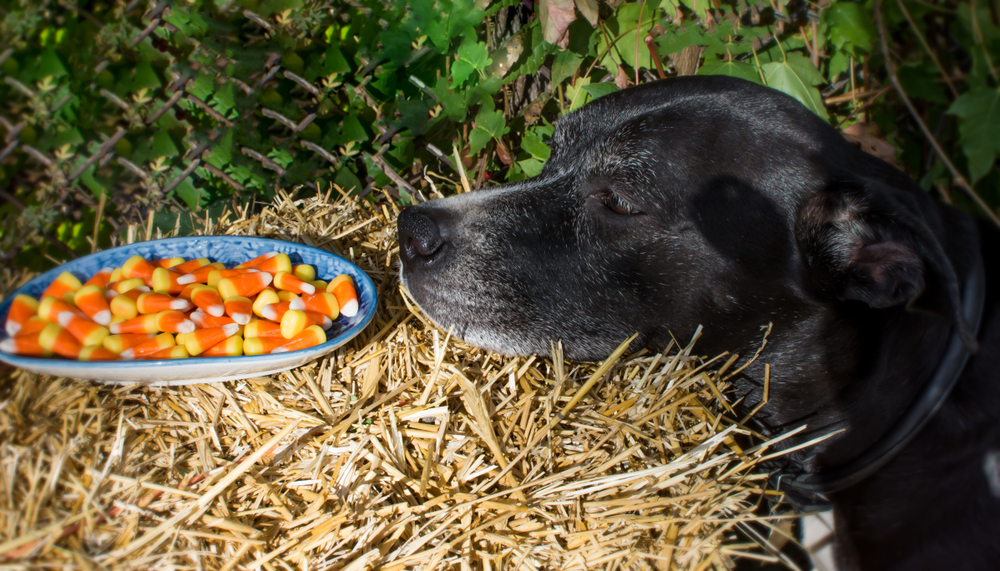
Halloween is all about sugar, so let’s talk about a scary aspect of this sweet substance—elevated blood sugar. Although eating candy likely won’t predispose your cat or dog to diabetes, being overweight or obese can create many serious health issues. Diabetes is a common problem in heavy pets, who are also more likely to develop arthritis, skin infections, heart disease, respiratory issues, and some cancers. Avoid high blood sugar and other medical issues by keeping your furry pal at a healthy weight with the help of a customized diet and exercise plan created by your Tidmore veterinarian.
If your four-legged friend stumbles into a Halloween hazard as sticky as a spiderweb, you can count on your Tidmore Veterinary Hospital team to help. Give us a call if your pet gets into holiday trouble.




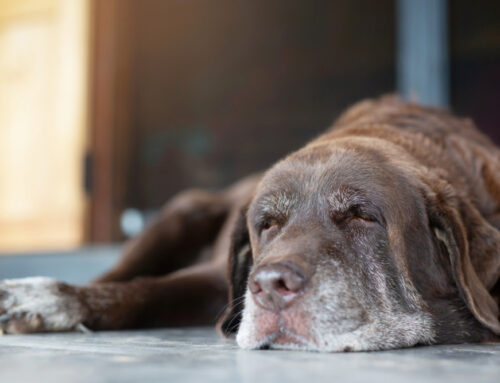
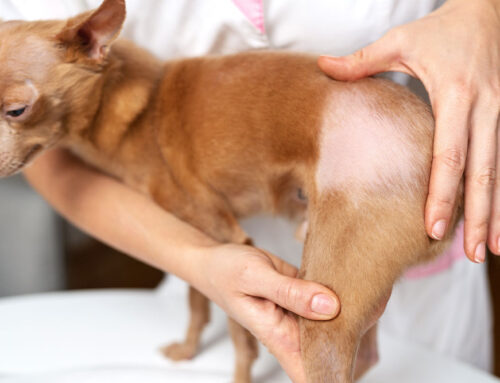
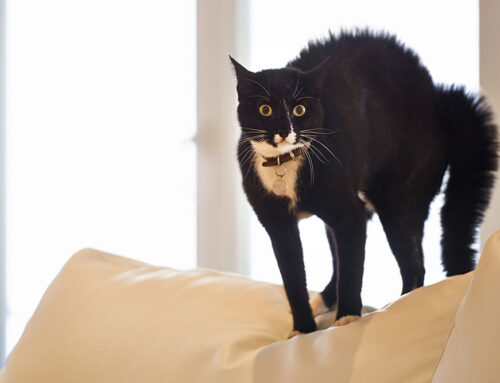
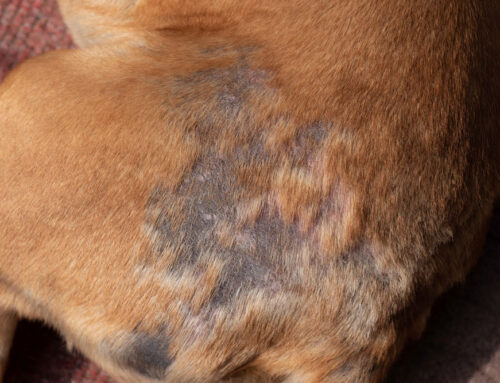
Leave A Comment